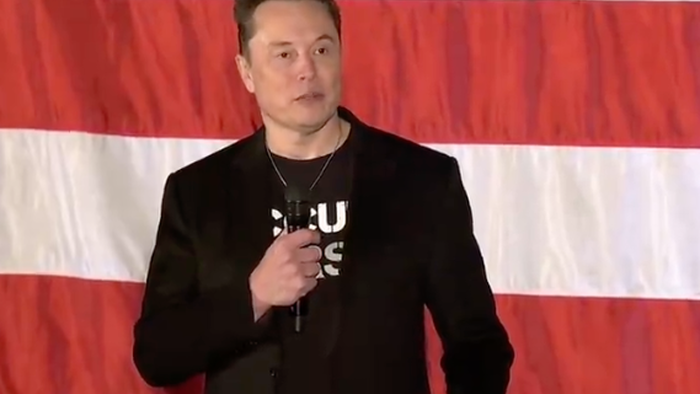Elon Musk made a recent appearance at the Greater Philadelphia Expo Center in Montgomery County for a town hall event, marking his second visit to Pennsylvania as part of his campaign efforts supporting former President Donald Trump, just 16 days ahead of the elections. Musk, alongside his pro-Trump America PAC, is hosting town halls statewide, emphasizing the importance of the battleground state in the upcoming election. During the event, an audience member brought up the topic of Tesla’s lack of acquisition of the struggling electric vehicle (EV) manufacturer Rivian. Musk’s response underscored the challenges faced by new entrants in the automotive sector and highlighted Tesla’s unique position as one of only two U.S. automotive companies, alongside Ford, that have not declared bankruptcy.
Musk pointed out the difficulties inherent in the automotive industry, stating that he empathizes with Rivian’s struggles. He expressed his hope for the company’s success but also acknowledged the immense challenges it faces in the market. Tesla’s founder noted that if it weren’t for significant technological shifts, specifically electrification and autonomy, Tesla itself may not have succeeded. He emphasized that the car industry is notoriously difficult, with few companies surviving the intense competition and operational hurdles. Rivian’s recent performances have reflected these challenges, as the company revealed that it fell short of its third-quarter vehicle delivery forecasts and subsequently lowered its full-year production guidance. This was attributed to ongoing component shortages hindering production capabilities.
The context surrounding Rivian reveals a company struggling to gain traction amidst high consumer expectations and substantial financial burdens. With Rivian delivering 10,018 vehicles in the third quarter, the numbers fell short of analysts’ predictions, and the company has set ambitious plans to introduce a more affordable, smaller model. However, this model is not expected to hit the market until late 2026 or early 2027, raising doubts about the company’s near-term viability and its ability to compete with established brands. The automotive industry environment has grown even more stringent due to rising interest rates and escalating vehicle prices, all of which contribute to skyrocketing monthly car payments for consumers.
Analysts are adjusting their forecasts in light of the slowing auto market, with Morgan Stanley’s Adam Jonas downgrading major players, including Rivian and Ford, signaling a downturn that reflects broader economic conditions. Rivian’s attempt to partner with Volkswagen could hint at future consolidation in the EV space, as smaller players grapple with the challenges of competing against longstanding automakers. The industry’s dynamics suggest that successful partnerships may be essential for survival, validating the trend Jonas previously predicted regarding struggling EV manufacturers collaborating with legacy companies.
Reactions from social media users highlight divergent views on Musk’s comments regarding Rivian. Some users assert that Tesla has little incentive to acquire a company that has struggled financially, while others point out Musk’s commitment to fostering competition within the industry. Musk’s history of open-sourcing Tesla’s patents to encourage the development of EV technologies by others illustrates his belief in the mission of advancing electric mobility. This approach signifies an intent to drive innovation across the sector, challenging all manufacturers to produce better products for consumers.
As Rivian’s stock continues to decline, falling 57% this year, concerns are mounting over its sustainability. Investors are wary, evidenced by a short interest of about 16.5%, illustrating skepticism about the company’s future prospects. Musk’s competitive strategies, particularly the price war initiated by Tesla to maintain market dominance, consistently demonstrate his commitment to ensuring Tesla remains a leader in the EV industry. The future remains uncertain for Rivian, highlighting the harsh realities of automotive manufacturing amid rapid technological evolution and a challenging economic landscape.

